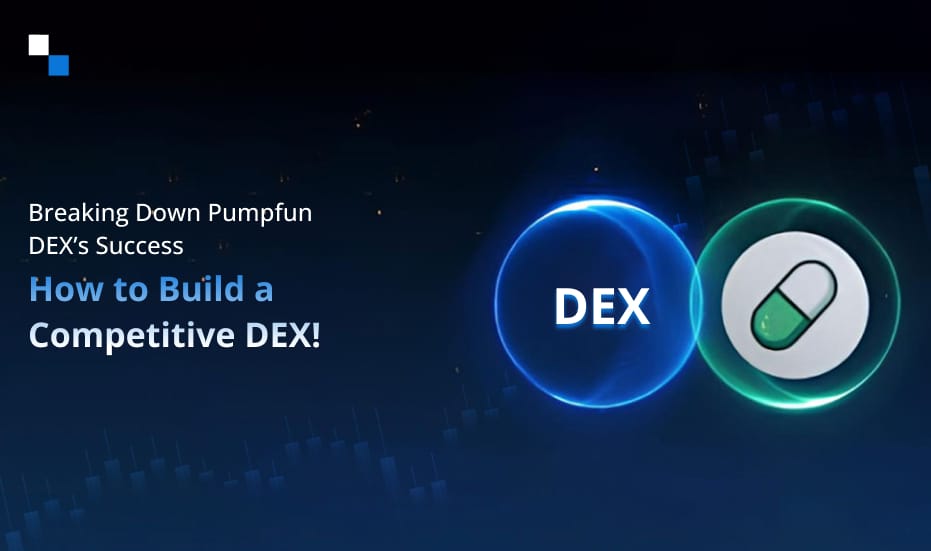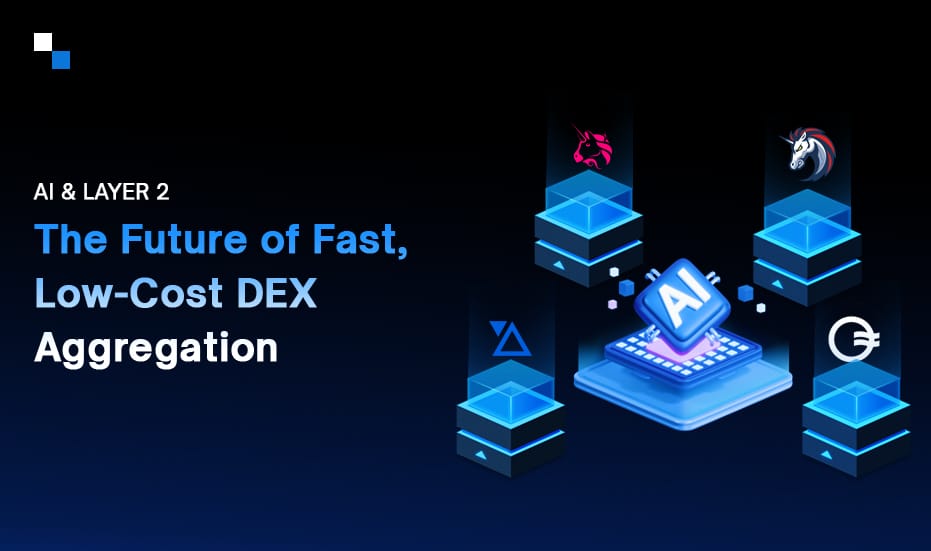
Revolutionizing Finance in Rural Areas with P2P Lending
September 1, 2023
Explore the Uncharted Realm of Soulbound Token Development
September 1, 2023As FTX collapsed in November 2022, many DeFi enthusiasts were left wondering who to trust next. The top decentralized exchanges (DEXs) that topped the charts in 2023 after the meltdown of a leading exchange are Covo, UniSwap, Curve Finance, PancakeSwap, DyDx, KyberSwap, etc.
The shutdown also opens up opportunities for novice players in the markets who wish to launch their innovative decentralized crypto exchange software platforms. Security would, however, be the foremost concern of saddened traders interested in trading on decentralized platforms.
If you are a business planning to embark on your decentralized exchange, or DEX, development journey, there might be plenty of questions on your mind.
In this blog, we will answer some of your questions, including
- Is it the right time to go for decentralized exchange software development?
- Why should I launch decentralized crypto exchange software in 2023?
- What are the costs associated with decentralized exchange software development in 2023?
Introduction
Web 3.0 is fueling innovations and rapidly transforming traditional technology-based businesses. As anticipated, it has brought forward a new generation of exchanges that align with the Web 3.0 vision for businesses. Decentralized exchange development is an amalgamation of these three pillars of Web 3.0 – decentralization, blockchain, and crypto.
Decentralized exchange software solutions are digital asset trading platforms that rely on peer-to-peer networks, facilitating a trustless venue. The DeFi space abounds with myriad innovative DEXs and their forked replicas. If you are interested in setting up your trader-empowering trading ecosystem, secure your spot in line as soon as possible!
Market Overview: Decentralized Exchange Software Development
Currently, there are four types of DEXs on the market, namely – AMM DEXs, order book-based spot DEXs, order book-based perpetual DEXs, and DEX aggregators. Let’s take a look at some of the decentralized exchange software development statistics.
-
- At the time of writing this blog, there were 524 decentralized exchanges with a total of 24 hourly trading volumes amounting to $1.37 billion and 134 million monthly visits.

- As per The Block, the total trading volume of DEXs surpassed the $100 billion mark in March 2023, with Uniswap dominating the market.
- As of August 25, 2023, the total of the last 12 months’ trading volume amounted to $815 billion.
Considering the statistics mentioned above, we can conclude that there is huge and profound potential for building decentralized crypto exchange software. Now let’s study some of the business benefits of building DEXs before we dive into the cost breakdown.
Business Benefits of Building Decentralized Exchange Software in 2023
- Fostering Customer Empowerment
Users do not need to trust any middlemen for their transactions, nor do they need to go through KYC processes during onboarding. This empowers them to exercise full control over their digital assets and preserve total anonymity. - Gaining the Attention of Money-minded Traders
Fees paid on decentralized exchange software platforms are considerably less than those paid on centralized ones. Therefore, by launching a power-packed decentralized exchange, you can attract money-conscious traders who prefer paying lower fees. - A Reliable and Transparent Trading Environment
As transactions happen directly between the users’ wallets, there is no single stack of funds as there is in centralized exchanges, making DEXs less prone to hacks. Moreover, the transaction records are accessible on the blockchain, ensuring total transparency. - Amplified Market Reach
As decentralized crypto exchange software solutions facilitate trading through crypto wallets, there are no major regulatory hurdles that limit their usage for users within certain geographical boundaries. Therefore, businesses can take advantage of a broader customer base. - Future-Proof Business:
The future belongs to businesses that embrace Web 3.0. By partnering with a reliable DEX development company, businesses can launch an exchange platform that adheres to the decentralization objective of Web 3.0. - Untapped Market Potential:
As the market is dominated by CEXs and saturated by basic DEXs, starting an advanced DEX with unique features can help businesses stay ahead of the curve. This also allows them to tap into the immense potential that lies in decentralized exchange software development.
Cost of Building Decentralized Crypto Exchange Software in 2023
While it might be a very common question, the answer to this question varies from one development agency to another. The cost of constructing a decentralized crypto exchange is influenced by a multitude of factors, including:
- Development Methodology: The foremost determinant of cost is the approach taken for DEX development. A white label decentralized exchange or a clone script from a reputed technology provider can significantly slash development costs and accelerate the deployment of an entry-level DEX. However, if the business doesn’t want to launch a DEX with limited functionality and has no budget or time constraints, on-demand decentralized exchange software development is always a great option.
- Complexity of the platform: Developing a complex decentralized exchange platform from scratch with more features and functionalities and more payment and cryptocurrency options is an expensive venture. Additionally, if you wish your decentralized digital asset trading platform to process huge volumes of transactions seamlessly, the DEX development company would increase the pricing to accommodate high scalability.
- Timeline and Tech Preferences: Depending on the technology stack and servers used while developing a decentralized trading platform, the price may vary. Also, if you require your DeFi, or decentralized finance exchange, to be launched within a particular timeline, the DeFi exchange development company might charge extra for speeding up your development process if needed.
In the end, the cost of DeFi exchange development largely depends on the experience, location, and reputation of the DEX development company. Besides being critical factors in deciding how much they charge for what additional things, they are also key determinants of the success of your decentralized exchange platform.
If you engage a renowned and seasoned decentralized exchange software development agency like Antier, you might be charged $50,000 to $70,000 for an entry-level exchange. For those seeking an intermediate or advanced-level exchange, the pricing could span between $70,000 and $300,000. It’s worth noting that a precise quotation for decentralized exchange software development costs will only be calculated after you clearly specify your desired features, UI/UX preferences, technology requisites, etc.
Remember, the pricing figures mentioned above are a preliminary estimation for development alone. These cost figures do not encompass expenses associated with any marketing or post-launch activities. They are just rough estimates that justify the efforts of the DEX development company performing market research, idea validation, front-end and back-end development, QA testing, project management, etc. for your project.
Final Thoughts
Decentralized exchanges have evolved significantly over the past few years and are even now in the evolution phase. Compared to the decentralized exchanges of 2014, which were limited and basic in terms of functionality, design, and capabilities, the DEXs of today are highly secure, reliable, advanced, and user-friendly.
Building decentralized exchange software is a rewarding investment, and its profitability will increase as more countries embrace and legalize the use of cryptocurrency. By integrating innovative features and introducing user-friendly interfaces, businesses can thrive in the saturated exchange market and reap greater benefits.
Antier, a pioneering Web3 DEX development company, is spearheading the development of innovative DEXs that leverage cutting-edge technologies to significantly reduce the challenges that arise when users navigate through decentralized trading platforms. They offer on-demand decentralized exchange development services and white label DEX exchange solutions to enable businesses to gain a competitive advantage.
Talk to subject matter experts today!



